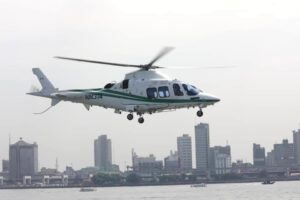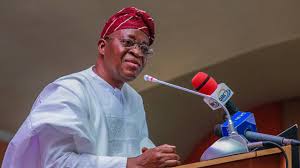The Federal Government has secured 10 convictions for various maritime offences since the Suppression of Piracy and other Maritime Offences Act was signed into law in June 2019.

Mr Femi Adesina, the President’s spokesman in a statement in Abuja, said President Muhammadu Buhari disclosed this at the official flag-off of the Integrated National Security and Waterways Protection Infrastructure in Nigeria at the ENL Terminal, Apapa Port, Lagos.
The facility is also known as the Deep Blue Project.
The president said: ‘‘I am confident that the project, which provides robust maritime security architecture, will enhance maritime domain awareness capability and improve law enforcement action, particularly in the prosecution of suspects under the Suppression of Piracy and other Maritime Offences Act which I signed into law in June 2019.
‘‘This flag-off is an important step in the continuing shift in strategic action about regional maritime security.
‘‘It will serve as a benchmark for member states in the Gulf of Guinea and other relevant stakeholders to further develop innovative strategies and align efforts with the subsisting framework to improve maritime security in the region.’’
Read Also: In Ghana, Maritime Stakeholders Want 15 Years Minimum Jail Time For Convicted Pirates
He called for greater collaboration among countries in the Gulf of Guinea to secure Nigeria’s waters and beyond.
Buhari noted that the assemblage of the new maritime security assets was coming at “a critical time when global discussions are centred on piracy activities and the new dimension it has taken in the region.
‘‘With the world’s waters accounting for over 80% of transportation requirements of the global economy, concerted efforts and innovative actions are required to address attendant security challenges.
‘‘Therefore, the flag-off of the project marks an important milestone in this regard and in our collective effort to tackle security challenges in the form of piracy and other maritime crimes in Nigeria and the Gulf of Guinea.
“It is also a demonstration of government’s strong commitment to ensuring security.
‘‘This intervention, no doubt, will facilitate a conducive environment for the maritime sector to thrive and contribute to the diversification of the Nigerian economy,’’ he said.
The president commended the Ministers of Transportation, Defence, the Chief of Naval Staff, the Director-General NIMASA, members of the Steering Committee, the Project Management Team and all other government stakeholders who had worked together to bring this initiative of the administration to fruition.
While assuring of government’s commitment to ensure the project’s sustainability, the president urged all critical stakeholders to work collectively for the greater benefit of all Nigerians, member states of the Gulf of Guinea and the global maritime community.
At the inauguration, the President, who witnessed the demonstration of a range of assets to tackle maritime security, supervised the naming of two Vessels, Deep Blue Abuja (DB-Abuja) and Deep Blue Lagos (DB-Lagos) by the Minister of State, Transportation, Sen. Gbemisola Saraki.
The land assets include: the Command, Control, Communication, Computer, and Intelligence Centre (C4i) for intelligence gathering and data collection. 16 armoured vehicles for coastal patrol; and 600 specially trained troops for interdiction, known as Maritime Security Unit.
The sea assets are two Special Mission Vessels and 17 Fast Interceptor Boats.
The air assets comprise two Special Mission Aircraft for surveillance of the country’s Exclusive Economic Zone; three Special Mission Helicopters for search and rescue operations; and four Unmanned Aerial Vehicles.
















Discussion about this post